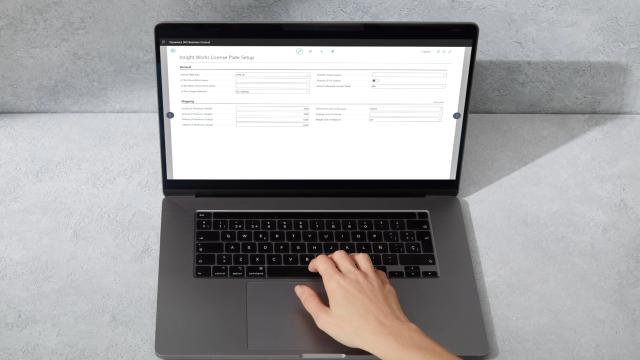
How to budget an ERP implementation?
Introduction to ERP systems
An Enterprise Resource Planning (ERP) system serves as the brain and nervous system of a company, efficiently storing all data in the company and sharing crucial information with the right individuals when needed. Despite this important role, there is still an ongoing discussion regarding the value of investing in ERP systems.
In the age of information, ERP has become an absolute necessity. However, it's important to note that not all ERP systems are created equal. Larger companies require more robust ERP solutions, and the current trend favors adopting off-the-shelf solutions with industry-specific knowledge built in. Opting for a powerful global ERP system can reduce customization expenses and significant time and energy savings.
Local vs Global ERP solutions
A local ERP solution is tailored to the needs of a specific region or locality. It often caters to smaller businesses within that area and may lack the comprehensive features of a global ERP system.
A global ERP solution is designed to meet the requirements of growing companies that often operate on an international scale, while still offering localization for nearly any country and industry-specific functionality. It offers an incredibly wide range of features and is equipped to handle complex business operations that span across borders.
Now, why does it make sense to opt for a global ERP solution? It's all about the return on investment. While global ERP systems might come with a higher upfront cost, they often pay for themselves in the long run. By reducing the need for extensive customizations and saving time and energy, these powerful solutions can streamline your business processes and enhance efficiency, leading to cost savings and improved profitability."
Implement Dynamics 365 Business Central from scratch
Implementing Microsoft Dynamics 365 Business Central from scratch is like laying the groundwork for a modern business management system. This process involves setting up this robust ERP solution comprehensively to cater to the specific needs of your organization. It usually encompasses module configuration, the definition of business processes, and the assignment of user roles.
For those making the shift from an existing ERP system, an important consideration is the possibility of data import. This option allows for a smoother transition, preserving historical information and facilitating the seamless integration of past and present data into the new system. It's a strategic move that streamlines operations and ensures a more efficient and data-rich future.
Upgrade to Dynamics 365 Business Central from NAV
Transitioning from Dynamics NAV to Microsoft Dynamics 365 Business Central represents a significant shift in your business management approach. It involves migrating your existing data, configurations, and many customizations from the earlier NAV system to the more advanced and cloud-based Business Central platform.
This upgrade isn't just about changing software; it's an opportunity to embrace modern features and functionalities, including enhanced cloud capabilities, improved accessibility, and seamless integration within the broader Microsoft ecosystem. This process ensures that your organization remains in step with the latest technological advancements, providing increased agility and the potential for heightened operational efficiency in your daily business activities.
Services for implementing or upgrading
Even though a global ERP solution like Business Central enables users to work with the system autonomously without an IT team involved for every task, engaging a Microsoft partner to assist with the implementation or upgrade process and maintenance is necessary in the vast majority of cases. The reality is that a robust ERP solution which the entire company is counting on at all times, should be implemented with assistance of experts who know what they are doing. The employees of the client have their hands full with defining processes, cleaning up data, preparing data for importing, and much more. They cannot handle the additional task of learning about the meticulous details of ERP software. An experienced Microsoft partner will hold your hand through the implementation process and make sure the results are as expected.
Licenses for Dynamics 365 Business Central
Dynamics 365 Business Central offers a range of licensing options tailored to meet the diverse needs of businesses. The essentials of these licenses include the 'Essential User' at an approximate price of 79 USD per month per user, and the 'Premium User' at an approximate price of 115 USD per month per user. Essential User licenses cover core functionalities such as finance, sales, and purchasing, while Premium User licenses extend access to warehouse management, service management, and manufacturing capabilities. Additionally, substantially lower-priced Team Member licenses are available for read-only access and basic tasks.
Additional Modules for Business Central
Oftentimes, additional modules that are built into Business Central, are developed by Value Added Resellers (VARs) with the purpose of making their implementation services or giving their clients crucially needed functionality that are needed in specific markets.
One such example is the Localization for Adriatic Region made by DignetSoftware. It offers not only the modifications in regard to the language, but also all modifications of Business Central that are needed for a company to be compliant with legal, accounting and taxation requirements in the markets of Croatia, Serbia, Bosnia and Herzegovina, and Slovenia. DignetSoftware also offers additional modules for Payroll, Travel Orders, Work orders, and a EuroConversion Tool.
Apps built into Business Central
Applications that are specially built as additions to Business Central are developed by Independent Software Vendors (ISVs) to expand the capabilities of the core system. These modules offer specialized functionality, catering to specific industry needs or unique business requirements. ISV modules can cover a wide range of areas, including e-commerce, project management, warehouse optimization, and more. By integrating these extensions, businesses can tailor their Business Central instance to precisely match their operations, enabling enhanced efficiency and versatility. The flexibility and diversity of ISV-developed modules make them valuable assets for businesses seeking to adapt and thrive in a dynamic marketplace.
Apps from Microsoft AppSource
Applications available on the Microsoft AppSource marketplace for Business Central offer a convenient and diverse way to enhance the functionality of this ERP system. Whether it's tools for analytics, customer relationship management, or industry-specific solutions, AppSource provides a wide array of third-party applications that seamlessly integrate with Business Central. These applications undergo rigorous quality checks and certification to ensure compatibility and reliability. By leveraging these add-ons, businesses can quickly adapt to evolving needs, streamline processes, and access new features, all while benefiting from the trusted Microsoft ecosystem. Microsoft AppSource serves as a valuable resource for organizations looking to extend the power of Business Central in a user-friendly and scalable manner.
Including the costs in your financial planning
Budgeting for ERP implementation and incorporating its cost into yearly financial planning is a crucial process. To begin, organizations should thoroughly assess their current financial health and consider their long-term objectives. The first step is to estimate the total cost of the ERP implementation, including software licenses, hardware, implementation services, training, and ongoing support. This cost should then be spread across several years in the financial plan, considering factors like the project timeline and the expected return on investment. By allocating funds annually, companies can ensure they have the necessary resources for a successful ERP implementation while maintaining overall financial stability. This approach allows for strategic allocation of funds, mitigating the financial burden associated with such a significant undertaking and promoting sustainable growth.
How do you decide if it is worth it?
Determining if the cost of an ERP implementation is worthwhile requires a careful evaluation of the potential benefits. Companies should assess how the system will streamline operations, enhance productivity, and improve decision-making. Consider factors like long-term cost savings, scalability, and the impact on revenue. Ultimately, if the ERP system aligns with the organization's goals and provides a clear path to improved efficiency and profitability, the cost is more thans justified.




